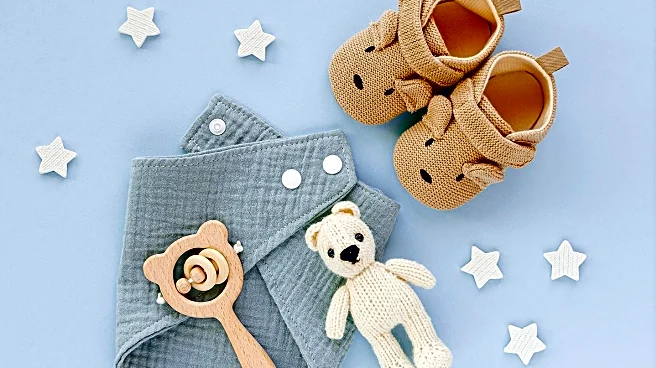What's Happening?
Aubree Jones, an Australian mother, faced significant backlash after revealing her newborn daughter's name, Disney Mae Jones, on TikTok. The announcement, accompanied by Disney-themed imagery, was met with criticism from social media users questioning
the appropriateness of naming a child after a major brand. Some commenters expressed concerns about potential legal issues with Disney, while others criticized the choice as potentially embarrassing for the child in the future. Despite the negative reactions, some defended the parents' right to choose unique names, noting that Disney is not an uncommon name in some circles.
Why It's Important?
The controversy highlights ongoing debates about personal naming rights and the influence of corporate branding on individual identity. It raises questions about the legal implications of using trademarked names and the societal norms surrounding naming conventions. The incident reflects broader cultural discussions about individuality versus conformity, and the potential emotional impact on children given unconventional names. This case may influence future discussions on naming regulations and parental rights, particularly in countries with strict naming laws.
What's Next?
The debate may prompt further scrutiny of naming practices and potential legal challenges regarding trademarked names. It could lead to discussions among lawmakers about the need for clearer guidelines on naming rights, especially in countries with existing regulations. Social media platforms might also see increased dialogue on the ethical considerations of naming children after brands, potentially influencing public opinion and cultural norms.
Beyond the Headlines
This incident underscores the cultural fascination with branding and its pervasive influence on personal identity. It raises ethical questions about the commodification of names and the potential psychological effects on individuals named after brands. The story also reflects broader societal trends in naming practices, where parents seek unique identifiers for their children, sometimes challenging traditional norms.














